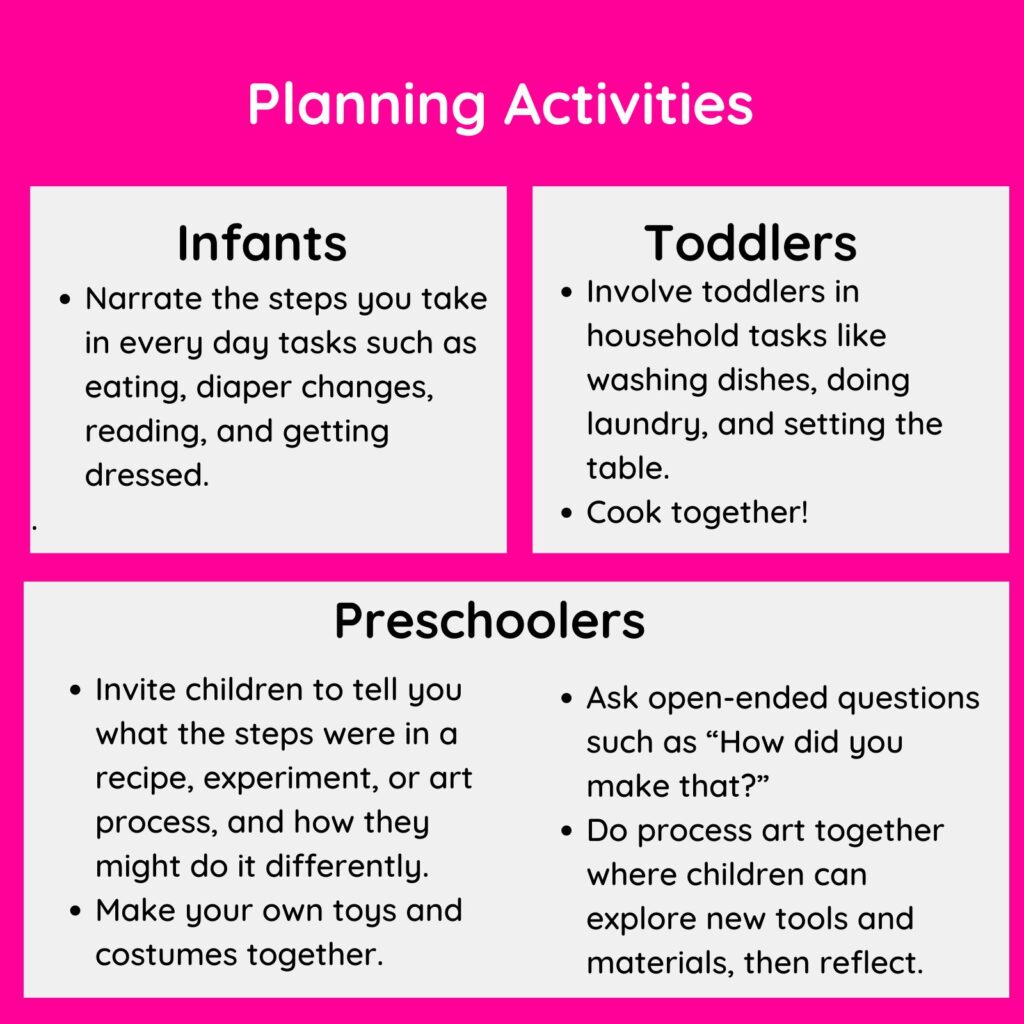
One of the great abilities of human beings is the ability to utilize complex cognitive abilities to think through different steps for completing a task. People use this ability every day! Just to eat, we plan out our meals as we search for recipes, write down the ingredients, plan our route to the grocery store, cook our meal, and then enjoy our yummy food! On a large scale, there are entire professions dedicated to being professional planners, as people execute their vision for a company, roll-out a new technological initiative, design a new research study, prepare for an annual conference, or plan a wedding. However, on a smaller scale, there are also people who are experts in breaking down simple tasks into steps, such as early childhood educators and caregivers who break down the steps for young children to learn how to feed themselves, put on their jackets, or tie their shoes.
This skill that we call “Planning”, or the ability to break our goals into steps, falls under executive function, which is the set of cognitive skills that also allow human beings to focus their attention, use reasoning, remember important information, and exhibit impulse control. This is a skill that caregivers can cultivate from a young age through simple, loving interactions with children! For example, in infancy, caregivers can start by gently narrating their own actions and those of the child. They might say “Let’s open the book together. Now I see you are pointing to the elephant and looking at his big feet. Stomp stomp! Let’s look at your little feet. Now, I see you are turning the page!” You can use this type of narration during meal times, diaper changes, and active play. This gives children the language they will need later on to plan.
In the toddler years, you can continue the narration and invite children to think through steps to complete simple tasks with you. For example, we love our “Cleaning Dishes” outdoor activity as a way to talk through steps of cleaning dishes with children. You can intentionally target ordinal language while also inviting children to do something they love: First wash, second rinse, and third dry the dishes. Toddlers love to take part in everyday activities as it empowers them to feel like they are big helpers (with a bonus for some sensory play!). Cooking is also one of the best ways to involve toddlers in a world where following steps leads to a delicious outcome, so we encourage you to check out our many child-friendly recipes in the Rayz Kidz app, such as our Personal Pizzas, Purrrfect Paw Rolls, and Caterpillar Cucumber Snack.
With preschool aged children, we can invite them to reflect on their own processes and methods, and invite them to think through the steps we take to do experiments, art activities, and to make our own toys. For example, you can make your own Princess and the Pea Play Kit (see our app for instructions!), that breaks down the steps to show children how they can make their own toys. Or, you can do fun open-ended process art activities, such as our Candy Crush Stamps or Butterfly Swirls, to invite children to reflect on the process of exploring different art materials. This ability to reflect, iterate, and see products and processes from different angles is a great way to go deeper into learning with children and help them to become lifelong learners.
